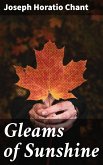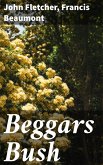In "Matins," Francis Sherman crafts a profound exploration of the intersection between the sacred and the mundane, reflecting on the rituals of daily life through a lens enriched by poetic imagery and contemplative prose. This work, characterized by its lyrical precision and introspective depth, draws on a rich tapestry of literary influences, marking itself as a notable contribution to contemporary spiritual literature. The thematic interplay of dawn's awakening and the complexities of faith resonates with the reader, inviting them to reflect on their own spiritual journey within the context of modern existence. Francis Sherman, an esteemed figure in contemporary literature, draws from his scholarly background in theology and literature, blending personal experiences with academic insight to develop the narrative of "Matins." His extensive travels and varied encounters with diverse faith traditions have shaped his worldview, equipping him with the unique ability to distill complex theological concepts into accessible reflections. Sherman's previous works have garnered critical acclaim for their intellectual rigor and emotional honesty, reinforcing his reputation as a voice of significance in modern spiritual discourse. I recommend "Matins" to readers who seek a nuanced understanding of spirituality in our increasingly secular world. Sherman's deeply reflective prose offers not just a reading experience, but an invitation to engage with one's own beliefs and practices. It is a resonant tapestry that promises to awaken the spirit and inspire critical thought'Äîa must-read for anyone on a quest for deeper meaning.
Dieser Download kann aus rechtlichen Gründen nur mit Rechnungsadresse in A, B, BG, CY, CZ, D, DK, EW, E, FIN, F, GR, H, IRL, I, LT, L, LR, M, NL, PL, P, R, S, SLO, SK ausgeliefert werden.









